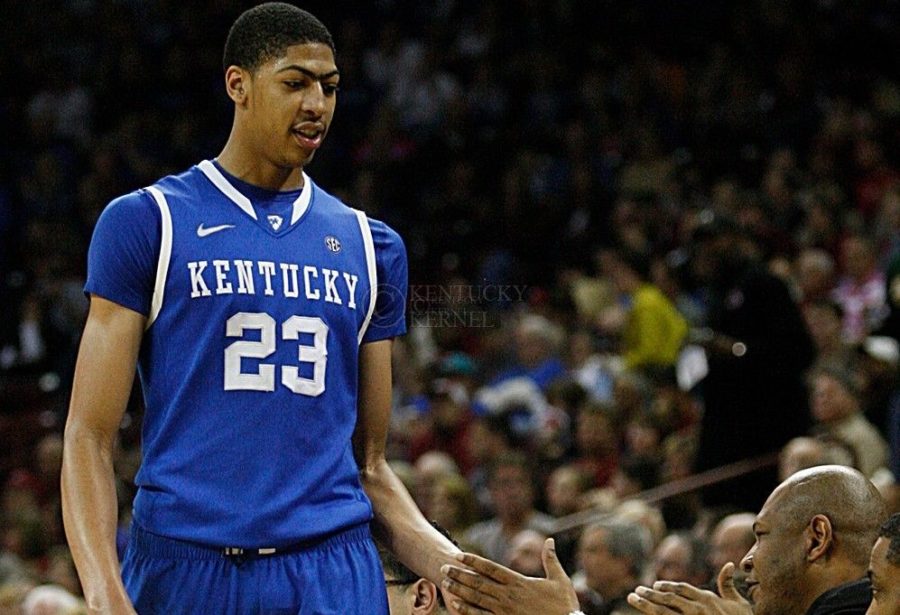Former Nike executive discusses alleged $10K deal for Anthony Davis at Kentucky
February 15, 2022
Merl Code, a former Nike and Adidas executive, knows his time in a jail cell is approaching.
Code, who played a role in the 2017 pay-for-play college basketball scandal that was uncovered by the FBI, spoke with Pat Forde and Dan Wetzel on the College Football Enquirer podcast to discuss his time as a middleman in one of the biggest scandals in collegiate sports history.
“[I was] the bogeyman,” Code said. “But I wasn’t the bogeyman [federal investigators] wanted. They wanted high-profile names. They wanted Sean Miller. They wanted Will Wade. They wanted Rick Pitino.”
In his upcoming book, Black Market: An Insider’s Journey Into the High-Stakes World of College Basketball, Code goes in-depth about multiple players and schools, including former Kentucky star and NBA All-Star Anthony Davis.
Code alleges that Davis’ family accepted $10,000 cash in an envelope, as Davis’ father had lost his job and the family needed the money. Code also says that a t-shirt deal with Davis had been reached that would get the family some extra money.
“When I was on the pro side at Nike, I made numerous trips to Kentucky to see guys like Rajon Rondo, Eric Bledsoe, John Wall, DeMarcus Cousins and a few others. I had some solid relationships with folks in Lexington, so the first call I made was to a former assistant athletic director. He was no longer working in that capacity, but he was super connected to some heavy hitters,” Code said.
The transaction between Code and the Davis’ allegedly took place in Bloomington, Indiana, before the infamous game between the Wildcats and Hoosiers occurred, which saw IU’s Christian Watford defeat the Cats on a buzzer-beater.
“On Dec. 9, my guy in Lexington called me and said, ‘They’ve had some movement, made some sales. They’ve got 10 grand for the family right now. How do you wanna handle it?’”
Code claims to have made the trip from Chicago to Bloomington, received the money, then exchanged it with Davis’ mother.
While illegal at the time, as Name, Image and Likeness laws were nowhere near changing, Code doesn’t regret a thing.
“These are really good people,” Code said of Davis’ family. “That kid and his family deserved an opportunity to live without constantly worrying about keeping a roof over their heads and food on the table, especially while AD was generating tens of millions of dollars for everyone except himself. … I have no qualms about what we did to help them. Now, with athletes being permitted to profit off their names, images and likenesses, I actually feel vindicated in helping that family in the way that we did. It was the right thing to do—to hell with what the NCAA would have said at the time.”
Code’s book is set to be released on March 1, as he waits for his future in federal prison.


























































































































































